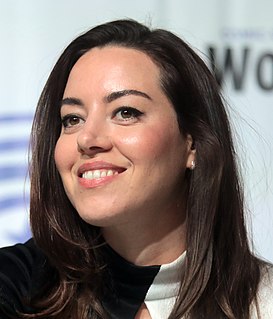A Quote by Steven Wright
I never even thought of myself as deadpan until someone wrote an article about me about a year after I was doing comedy. There was a paper called the 'Boston Phoenix,' and someone wrote a description of what I was doing and that's where I first saw 'deadpan.'
Related Quotes
I took to writing as my medicine to help me stay afloat in acting career journey. I wrote about me breaking hearts, and my heart being broken. I wrote about my views whether they were liberal or conservative. I wrote about everything. I wrote about my life. When I did not have paper coming in as green backs, I'd use random pieces of paper for stories. It was like, I got no money, but I have paper to write. So I wrote.
I thought of all the magazine article I'd read on mothers who worked and constantly felt guilty about leaving their children with someone else. I had trained myself to read pieces like that and silently say to myself, 'See how lucky you are?' But it had been gnawing at the inside, that part that didn't fit, that I never let myself even think about. After all, wasn't it a worse kind of guilt to be with your child and to know that you wanted to be anywhere but there?
I started off doing indie comics that I wrote and drew myself. I was doing those for ten years before I started to work for DC. The first book that I wrote for DC was for another artist. I did some backups in 'Adventure Comics' years ago starring The Atom. That's the first time that I ever wrote for another artist.
At Princeton I wrote my junior paper on Virginia Woolf, and for my senior thesis I wrote on Samuel Beckett. I wrote some about "Between the Acts" and "Mrs. Dalloway'' but mostly about "To the Lighthouse." With Beckett I focused, perversely, on his novels, "Molloy," "Malone Dies," and "The Unnamable." That's when I decided I should never write again.
The secret of it all, is to write in the gush, the throb, the flood, of the moment – to put things down without deliberation – without worrying about their style – without waiting for a fit time or place. I always worked that way. I took the first scrap of paper, the first doorstep, the first desk, and wrote – wrote, wrote…By writing at the instant the very heartbeat of life is caught.


































